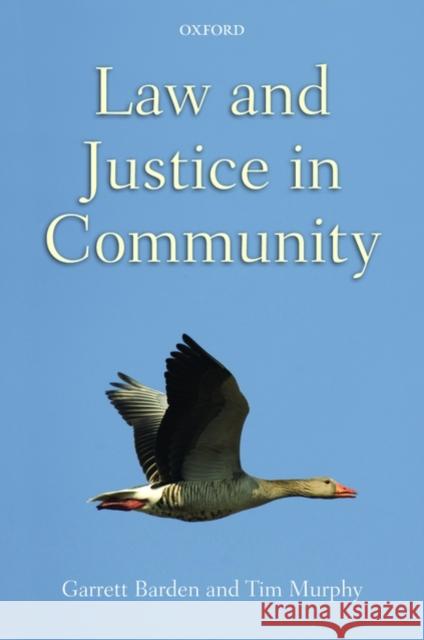Law and Justice in Community » książka
Law and Justice in Community
ISBN-13: 9780199592685 / Angielski / Twarda / 2010 / 330 str.
This book proposes a general theory of the nature of law based on the assertion that law exists in all human communities before it is ever posited or in any other sense formally expressed. According to the theory, the nature of law is not captured in what is variously called 'positive law', 'conventional law', 'state law' or 'human law'. The theory holds that a living law is an omnipresent feature of human community. By 'living law' is meant primarily those normative judgments and choices that are generally accepted and approved in a particular community.
The book begins by exploring the origins of civil society and the function of law. The authors adopt the Roman law definition of justice as the willingness to give each what is due, and they examine the mutual rights or entitlements that must be for the most part honoured for any society to survive. In addition to distinguishing natural justice from conventional justice, and setting out in detail the distinction between distributive justice, rectificatory justice and reciprocal justice. The study proceeds to analyse justice and the trading order; the nature of adjudication and interpretation; the relationship between morality, law and legislation; natural law; rights; law and coercion; and the authority and legitimacy of law.
While the authors invoke several classical and medieval sources, their account of law and justice in community is innovative and contemporary. It will be of interest to students of philosophy, social anthropology, political science, and those involved in the sociological study of law.











